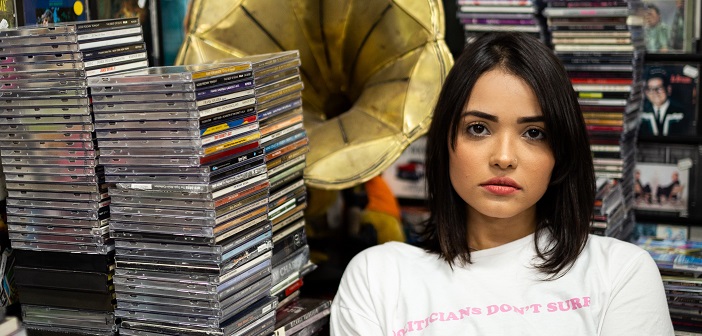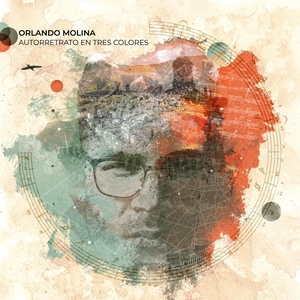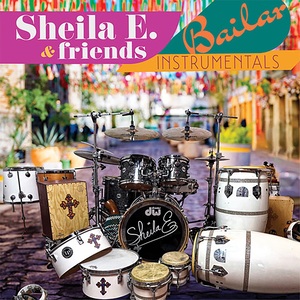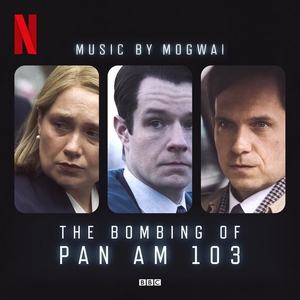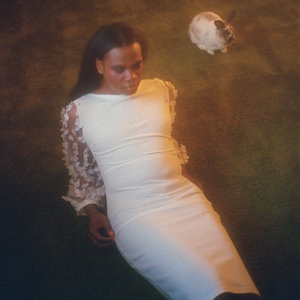Album review overview: Mogwai, Sheila. E and more
Dozens of new albums arrive at Maxazine’s editorial staff every week. There are too many to listen to, let alone review them. It ensures that too many albums are left behind. And that’s a shame. That is why today we post an overview of albums that arrive at the editors in short reviews.
Orlando Molina – Autorretrato en tres colores
A self-portrait in three colours: this is the debut of guitarist Orlando Molina, born in Venezuela but currently living and working in Ireland. Until now, Orlando mainly logged flight hours as a session musician, but apparently, the moment had come to step into the spotlight himself. Yet it takes a while on this album before we hear a guitar. The opening “Via 26” is really for Scott Flanigan’s piano. Only in the final section does Molina step forward, and we hear the full sound of the classical six strings on a concert guitar. Gradually, we understand that the emphasis on this album lies much more on the composer than Molina also is, alongside being an excellent and particularly versatile guitarist and bandleader. Molina mixes Latin with jazz, but in a unique way and provides special arrangements. In “De lo Vivido a lo Vivo”, we hear a duet between the classical guitar and a cello. In “Pacienca”, Molina lets his playing beautifully intertwine with the voice of Mexican singer Alicia Garcia. Besides an acoustic guitar, we also hear electrically amplified notes now and then, such as in “Un Vida, Many Lives”, where we even detect a hint of Mike Oldfield. All in all, a very varied record and thus an excellent debut. (Jeroen Mulder) (8/10) (Anda)
Sheila E. & Friends – Bailar Instrumentals
Sheila E. proves once again why she is the undisputed Queen of Percussion. On “Bailar Instrumentals” she lets her timbales and hand percussion sparkle in a warm Latin-jazz environment reminiscent of summer evenings in Havana. The percussive fireworks we’re used to from Sheila are nicely embedded here in a professional production. Everything sounds neat and well-thought-out, without losing the spontaneity that makes her playing so special. The influence of her godfather, Tito Puente, echoes through every track, while her stamp remains audible. The instrumental tracks breathe the rich traditions of Latin-jazz, with grooves that automatically make your feet move. The album feels like a musical journey through different Latin rhythms, with Sheila’s rhythmic stories forming the common thread. “Bailar Instrumentals” is the perfect soundtrack for a garden party this summer. It has that relaxed energy that brings people together, without becoming pushy. A nice album that shows why Sheila E. is still relevant in the modern music landscape. (Jan Vranken) (7/10) (Stilleto Flats)
Scylla & Furax Barbarossa – Portes Du Desert
In the liminality between Brussels melancholy and Maghrebi mysticism, something exceptional emerges. “Portes Du Desert” transcends the boundaries of what Belgian rap can be. Seventeen compositions that function as a spiritual cartography of longing and redemption. The opening track immediately announces: here we no longer navigate in conventional rap territories. The melodies float like mirages, an invitation to inner pilgrimage. The title track gives voice to Scylla’s existential thirst, while Furax Barbarossa’s complementary intensity strengthens the music. What truly distinguishes this album is how Belgium’s artistic DNA resonates through every beat. In “Gardiens, Pt.1”, we recognise the collective influence of Jacques Brel, not as imitation, but as genetic transmission of emotional authenticity. The spirit of Arno Hintjens wanders through these compositions, in the willingness to be vulnerable, the courage to place authenticity above perfection. The North African spirituality that permeates the album emerged during ten days and nights of creative process in Morocco, an authentic cultural osmosis where the desert functions as a metaphor for inner wilderness. After fifteen years of sporadic collaborations, both artists have finally found the alchemy that exponentially multiplies their powers. This is the best Belgian rap album to date. Period. (Elodie Renard) (9/10) (Ciel Mauve/Demain)
Mogwai – The Bombing of Pan Am 103 Soundtrack
Somewhere between documentary truth and musical imagination, Mogwai has made a soundtrack that feels like a quiet journey through dark stories. This is not explosive post-rock as we’re used to from the Scottish band, but rather a whispering route through tension and deep contemplation. Where their regular albums often build up to a great release through volume and power, “The Bombing of Pan Am 103” shows a band that has discovered the power of silence. The opening with its humming synthesizers and plucked chords creates an atmosphere of dark calm, as if you’re walking through empty airport halls where echoes of stories still linger. Tracks like “Luqa Airport” and “Back home to Giffnock” work as emotional landscapes: melancholic without being depressive, tense without demanding too much from you. They are compositions that give space for your thoughts, perfect for those solitary listening sessions where music becomes your soundtrack. Although originally intended as TV music, this work rises above its television purpose. With headphones on, it becomes an intimate journey through subtle sounds and atmospheric soundscapes that show how well Mogwai can transform emotion into pure atmosphere. A beautiful deviation from their usual path, proof that great artists can push their boundaries. (Anton Dupont) (7/10) (Rock action records)
Shamir – Ten
In the silence between intensity and melancholy, Shamir’s “Ten” unfolds like a meditative farewell. This tenth album, announced as his last and the conclusion of his self-declared ‘anti-career’, forms an intimate cartography of an artist who has walked his own path, from the danceable euphoria of “Ratchet” to the raw confession of “Hope”, and now this contemplative synthesis. The ten tracks breathe within the idiom of indie singer-songwriter rock, where the deliberately lo-fi production functions as a transparent veil. This choice for authenticity over polish succeeds wonderfully: every guitar touch and vocal phrasing feels genuinely uncut. “Golden” shines as the album’s highlight, a song that would effortlessly find its way to that one Dutch radio station that calls itself alternative. The closing chord “29” calls for an intimate listening experience; you almost want to crawl into the stereo to follow Shamir’s falsetto voice. His phrasing evokes fragments of Loren Kramar, or maybe not, it remains a guessing game in this beautiful ambiguity. “Ten” requires patience, multiple listening sessions to fully unlock. Real music, pure gain. (Jan Vranken) (8/10) (Kill Rock Stars)
![]()

